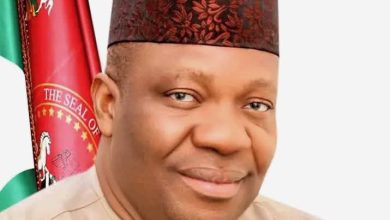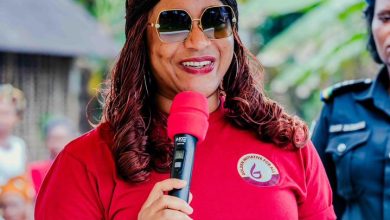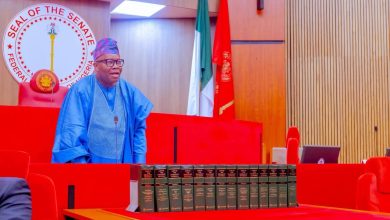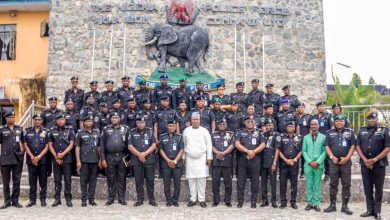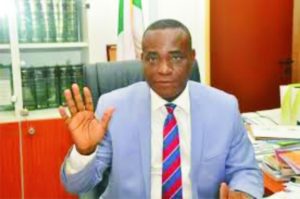
“This oil bloc business is so lucrative…This business is second to none in Nigeria. That is why any attempt to investigate the activities in this sector will always be futile. The money is so much that they give bribes in millions of dollars. They are so confident that with excess money, they can buy up Nigeria and they are succeeding”. – Quoted from Faces International Magazine (ISSN:CAC.BN.A1), 2015.
While serving as Chairman, Senate Committee on Business and Rules, Senator Ita Enang, disclosed that 83% of oil blocks in the Niger Delta is owned by northerners. By virtue and privilege of office, it was possible for the Senator to know that. However, some had contested against Sen. Enang’s position and argued that it was politically motivated on the logic that 88%, by estimation though, of oil blocks in the country is owned by multinational corporations. What was not debated upon however was the fact that the Niger Delta region contributes about 90.1% of crude oil to national growth.
Sen. Ita Enang’s disclosure apparently sparked some curiosity amongst Nigerians on the truthfulness or otherwise of the possibility for such percentage of ownership of oil wells/blocs in the Niger Delta so be allocated to those Enang called “northerners”. The press was at the forefront of that adventure. It was not long when names were mentioned, companies cited and figures traded on what was the purported or specious result of findings.
For instance, an online medium with the title: “Oil Well Owners in Nigeria: Full List (2019)” (https://negerianinfopodia.com/oil-well-owners-in-nigeria) listed 89 names of core Nigerians who owned oil wells, prominent amongst whom were names like Gen. Theophilus Danjuma, Col. Sani Belo, Alhaji Mohammed Ludimi, Alhaji W. I. Folawiyo, Alhaji Aminu Cantata, Alhaji Sela Mohammed Gambo, Prince Nasinu Ado Bayero, Alhaji Mai Daribo, Rilwan Lukman, and Alhaji Atiku Abubakar.
Some other names mentioned by the same online platform were Ibhrahim Bunu, Saleh Jambo, Aminu Alhassan Dantata, Mohammed Indimi, Said Kuashi, Alameiyesheiga Anitonbrapa, Dan Etete, Emeka Offor, Andy Uba, Peter Odili, Mike Adenuga, Femishola Awosika, O. Adeyinka, Arthur Eze, Rachel Akintola, George Udoekong, Usman Danburran, etc.
Earlier in 2017, the same online authority, trying to identify the oil wells with respective owners, had gone further to explain that “General Theophilus Danjuma is the owner of OPL246 whose company is known as SAPETRO. The oil bloc exports up to two 300000 barrels of crude daily”. It stated that Col. Sanni Bello is owner of NOML 112 OML11 and his company is known as International Petroleum Development Company. Then it added, “Sanni Bello is in-law of Abdulsalami Abubakar who was the former Head of State”.
Again, the source purported that Peter Odili owns OPL 289 and OPL 233 and the operating firm in this oil well is Clewater Rfeinery and RivGas Petroleum and Gas Company which is managed by Okey Ezenwa as the Vice Chairman. It further added, “Emeka Offor owns OPL 291 that is operated by Starcrest Energy Nigerai Limited. This oil well was later sold to Addax Petroleum Development Company Limited”; while OML 110 that ahs high yield belongs to Alhaji Mai Baribo, a Bornu Patriarch. By the analysis and statistics of the source, the richest 20 oil well owners are from the north.
A source argues that “Little is known about the oil well owners in Nigeria and sometimes what is thought of as facts and true are actually outright misinformation. There are certain conditions to be met before being awarded the oil well. Some persons just work with these oil wells to manage them but do not own them in anyway”.
According to the Department of Petroleum Resources (DPR), oil wells are awarded based on bids by interested persons as may be considered qualified by certain criteria of selection. It si said that Nigeria owns about 52 percent of oil blocs in the country, while foreign oil interests own the remaining 48 of the oil blocs. There are about 173 active oil blocs in Nigeria, out of a total of 388.
This may explain why there were serious concerns and unpretentious disapproval of the withdrawal and subsequent revocation by President Buhari of Oil Prospecting Licenses (OPL) 2001, 2002, and 2003 in the Utapate Field won by indigenes of the Niger Delta, who were said to have emerged after the Federal Government opened up the oil bloc bidders in the 2007 bid rounds.
There are hopes that the Petroleum Industry Bill shall provide lasting and workable protection and solution to issues like this. But for now, the question still remains: How fair and transparent is the process of oil well allocation in the Niger Delta, so that the aborigines are not deliberately robbed or marginalised?
Oil Derivation: All Is Not Well In Esit Eket
Akwa Ibom State/ Stakeholders in oil and gas rich Esit Eket local government area of Akwa Ibom State have cried out that their living conditions do not reflect the enormous resources being extracted from the area by oil and gas companies and the huge revenues the companies pay annually to government.
This was made known during a Town Hall Meeting organized by Policy Alert as part of its #WetinWeGain campaign, recently at Esit-Eket Local Government Secretariat of Akwa Ibom State. The campaign aims to mobilize resource-rich communities to utilize payments to governments data as a tool for making more effective demands from companies and government, thereby improving the benefits the communities derive from investments in their backyards.
Clan Head of Uquo, Obong Ete Udo Ikot, welcomed the team and expressed his readiness to work with Policy Alert, saying: “We have become greatly marginalized because of our oil. Memoranda of Understanding reached on community development and clean-up of oil spills are never honoured by the companies. That is why we need trust and cooperation between all the affected communities. I am happy that this information has been brought to us here today. We cannot remain silent because silence will weaken the community interest.”
Receiving the team earlier, President of Afigh Iwaad Eket, the foremost youth socio-cultural platform of Eket/Esit-Eket, Pastor Godwin Francis, noted that the communities cannot deal with the challenges all on their own and needed the support of strong civil society groups. He commended Policy Alert for the initiative and pledged the continued partnership of the youths in the area.
Speaking during the visit, the organisation’s Programme Lead, Extractives and Open Data, Iniobong Usen, said: “The Niger Delta plays host to billions of dollars in oil, gas and mining investments on which the Nigerian economy largely depends, yet the region continues to lag behind the national average on several development indicators. One reason for this state of affairs is the secrecy surrounding decades of transactions between the companies and the Nigerian state, which enabled massive corruption and loss of revenues that should otherwise have gone into improving the lives of Nigerians and the host communities in particular.
“Some reforms have happened in the sector over the years, such as the annual publication of oil, gas and mining audit reports, as well as Payments to Government reports by companies mandated by some of their home countries. These have increasingly shone the light on some of the anomalies in the sector. The next step is for citizens to take such data and use it to extract accountability from government and companies. We have come to your community today to put that data in your hands so that you can use it to get more benefits to your community.”
Also speaking, Ken Henshaw, Executive Director of We The People, urged participants to be interested in who does what in their community, since they are the ones suffering the adverse impact of oil pollution in the area. He advised the community to invoke laws enacted to protect their rights to Free, Prior and Informed Consent, noting that improper consultation with the community by oil and gas companies amounts to theft of community property.
Data from reports of various companies operating in the area was shared with the community. The companies include Frontier Oil, ExxonMobil, Seven Energy, Seven Uquo Gas Limited (SUGL) and Accugas. The team also informed the community of the entry of Savannah Oil into the area through a recent deal with Frontier Oil.
Policy Alert is a non-governmental organization working for citizens’ rights and development in the Niger Delta region. The Town Hall Meeting was part of a project implemented by Policy Alert in partnership with Publish What You Pay (PYWP) Nigeria and PWYP UK, to share new simplified data on transactions between government and companies with community members, while affording communities a space to speak up on their own experiences with the companies and government agencies that receive oil revenues.
FACTS
But what is an oil well? What is an oil bloc? What is the difference between oil well and oil bloc? According to one authority, an oil bloc or an oil field is a place with an abundance of oil pockets called oil wells which contains crude oil or petroleum which can be drilled and extracted and which is below the earth’s surface. It could be on land or a little below water level and could be as deep and hundreds of kilometres into the earth’s surface, across and with the oil wells numbering into many.
On the other hand, an oil well is typically a pocket of oil below the earth’s surface which contain crude oil or petroleum which is significant enough to be extracted or drilled. There are three types of oil wells, namely – Crude oil producing oil wells, natural gas producing oil wells, and natural gas and crude oil producing oil wells.

